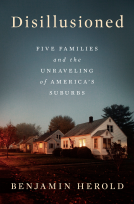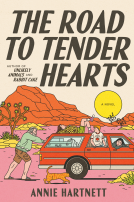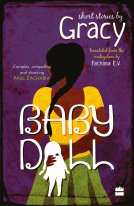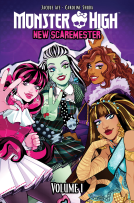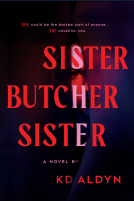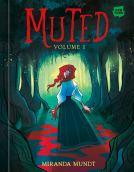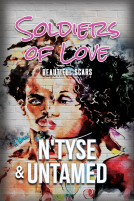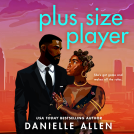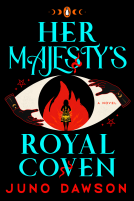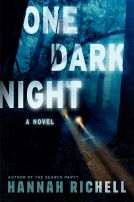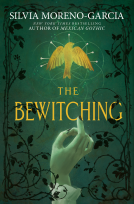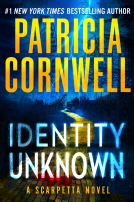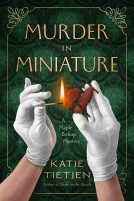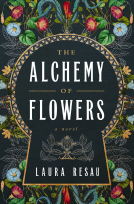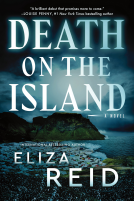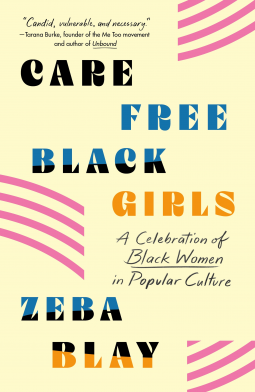
Carefree Black Girls
A Celebration of Black Women in Popular Culture
by Zeba Blay
This title was previously available on NetGalley and is now archived.
Send NetGalley books directly to your Kindle or Kindle app
1
To read on a Kindle or Kindle app, please add kindle@netgalley.com as an approved email address to receive files in your Amazon account. Click here for step-by-step instructions.
2
Also find your Kindle email address within your Amazon account, and enter it here.
Pub Date Oct 19 2021 | Archive Date Nov 02 2021
St. Martin's Press | St. Martin's Griffin
Description
One of Kirkus Review's Best Books About Being Black in America
"Powerful... Calling for Black women (in and out of the public eye) to be treated with empathy, Blay’s pivotal work will engage all readers, especially fans of Mikki Kendall’s Hood Feminism." —Kirkus (Starred)
An empowering and celebratory portrait of Black women—from Josephine Baker to Aunt Viv to Cardi B.
In 2013, film and culture critic Zeba Blay was one of the first people to coin the viral term #carefreeblackgirls on Twitter. As she says, it was “a way to carve out a space of celebration and freedom for Black women online.”
In this collection of essays, Carefree Black Girls, Blay expands on this initial idea by delving into the work and lasting achievements of influential Black women in American culture--writers, artists, actresses, dancers, hip-hop stars--whose contributions often come in the face of bigotry, misogyny, and stereotypes. Blay celebrates the strength and fortitude of these Black women, while also examining the many stereotypes and rigid identities that have clung to them. In writing that is both luminous and sharp, expansive and intimate, Blay seeks a path forward to a culture and society in which Black women and their art are appreciated and celebrated.
Available Editions
| EDITION | Other Format |
| ISBN | 9781250231567 |
| PRICE | $16.99 (USD) |
| PAGES | 256 |
Featured Reviews
Culture critic, Zeba Blay was the first person to tweet #carefreeblackgirl back in 2013. Carefree Black Girls is a book of her essays about Black women’s impact on pop culture and “what it means to be a Black woman and truly be ‘carefree.’” She describes this book as “an offering” and not “a history, an explainer, a guide, or a map to Blackness”. It is a is a celebration of Black women and our full and complex humanity.
Blay looks at how Black women, from Josephine Baker to Breonna Taylor, have been represented in pop culture; how affirming it feels to see yourself represented in media; and how representation alone will not liberate us. Like Blay, “I'm reaching out for a world where we value not just the representations of Black women but Black women themselves.”
Essay topics include bodies and weight, sexuality, girlhood and mental health. CW: Suicide, transphobia, disordered eating.
This is a book I can see myself returning to, to see if and how we have progressed as a society.
I’m thankful to Zeba Blay, St. Martin’s Press, and NetGalley for the opportunity to review an uncorrected digital galley in exchange for an honest review.
 Toni B, Reviewer
Toni B, Reviewer
Zeba Blay is film and pop culture critic who has contributed to many publications. She should be lauded for breaking into the film critic industry which is 77% white male. Surprising, when the films are not watched by a 77% white male audience. Let's put that aside for now.
The book is advertised as an "exploration and celebration of Black Women's identity and impact on pop culture, as well as enduring stereotypes they face..." It is this but it is also a collection of very personal insights into the effects of those stereotypes on Zeba Blay and her mental health particularly. She expounds intimately on her mental health and also on current events, political and otherwise and their affects.The history of black women stereotypes throughout film, music and pop culture is in itself an informative ,fact-based and enlightening read. Throughout the book, I learned that I was not as aware as I should have been of how it impacted the emotional welfare and development of a black girl or woman. Even believing myself empathetic and sympathetic to their hardships I discovered that my empathy only scratched the surface of their emotions. "Black women , walk through the world with a kind of careful intentionality of one who walks on glass, acutely aware of the confinements of their existence in ways that others do not have to be. "- think about that .As hard as one tries, one cannot always imagine what it is like to live in someone else's body and handle the day to day injustices, fears, and even invisibility. "Even Black death is commodified. And this commodification, this meme-fication, always turns Black death into a theoretical problem. an abstraction, rather than something real and true that reverberates through lives." The problem is the constant specter of white violence and its consequences, the reality of it , the fact that [ Black women} are made to feel crazy, the fact that they must fight to exist as white violence continues to exist and nobody seems to care." Who can feel free under these conditions? Joy, freedom, opportunity, peace should not only be available to a finite group of people. Blay likens these fears to be similar to PTSD, affecting every aspect of a Black woman's life, her choices, Where is the empathy ?
I am glad that I read these essays and will hope that it becomes a popular read in ALL circles. Zeba Blay writes" I'm reaching out for a world where we value not just the representations of Black women but Black Women themselves." A book for all of us to read and digest. A wonderful book for Women's Studies, Film Studies, Black Studies, Book Clubs. There is so much here to discuss from so many perspectives.
I leave you with just one more quote:Professor Barbara Fields, a Black women who is an expert on the Civil War, states " If there was a single event that caused the war, it was the establishment of the United States in independence from Great Britain with slavery still a part of its heritage."
 Educator 550974
Educator 550974
NetGalley ARC Educator 550974
This is a manifesto and aria of a carefree black woman. To often mocked, ridiculed and not allowed to live life safely and how they want to. Every collection should have this.
It is a one sitting read that you won't want to put down. It contains historical facts and current day events. Protect Black women at all costs.
 Reviewer 709085
Reviewer 709085
I really enjoyed all the essays in here on the experiences of black women and what constitutes "careFree". Zeba Blay certainly has done her research and is clearly a student of bell hooks, Audre Lourde, and Patricia Hill Collins. My fave essay was on Cardi B. I kept nodding my head in agreement. An excellent addition to any Black Feminist library and would love to see it added to a syllabus in the future.
This is a book that all young girls should read, not just girls of color. Many times we only see girls, and especially girls of color, portrayed in a more negative light. I am happy that this tide is turning and showing young girls of color just how powerful they can be, just how much they can achieve. The essays are from girls that have such a wide variety of roles. Reading about their experiences and how they overcame obstacles to achieve their goals is so inspiring. Please make more collections of essays like this!!!
Thank you, NetGalley for the chance to read this book!
I thoroughly enjoyed this book and appreciated the vulnerability in each essay. I really hope some of the chapters are integrated into Women’s Gender & Sexuality courses offered at various universities.
This is a beautiful collection of essays that explore the images and depictions of black women and girls throughout our culture. This book tackles subjects like racism, colorism, fat phobia, mental health, sexuality, and what it truly means to be a carefree black girl or if this is even possible. The author also includes her own personal thoughts and experiences and how they relate to these subjects. This book is not groundbreaking; these subjects have been explored before. But it is extremely honest. I saw a lot of my own experiences reflected in Blay’s. I’m sure that I won’t be the only one. This was moving, timely, and poignant. I loved it from the beginning to the end.
Readers who liked this book also liked:
Jacque Aye; Hannah Templer; Megan Brown
Comics, Graphic Novels, Manga, Teens & YA
